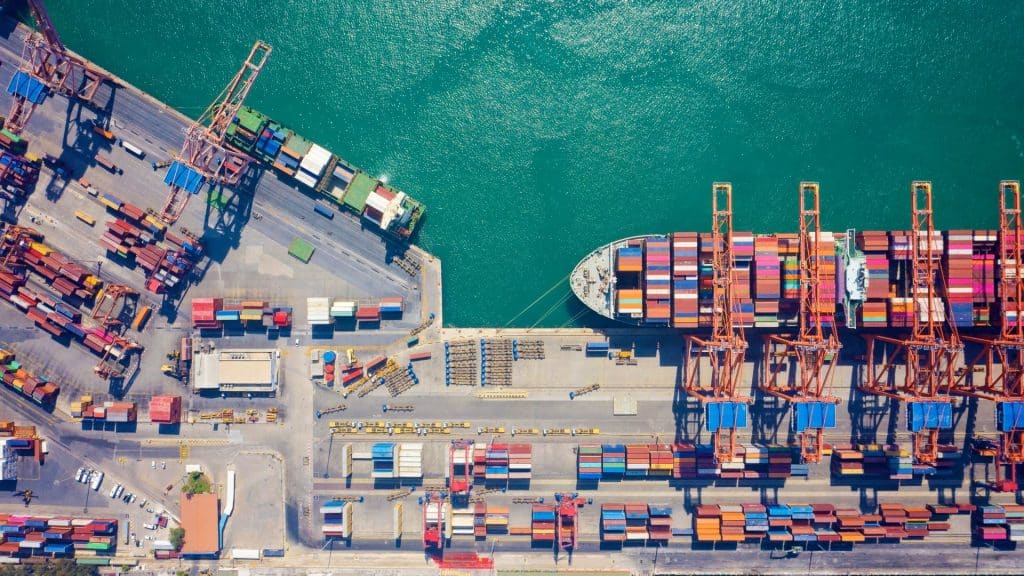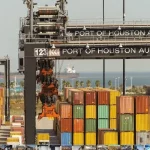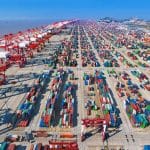NWSA TERMINALS, AG EXPORTERS IN TALKS TO ENSURE EFFICIENT CARGO FLOW
Marine terminals at the Northwest Seaport Alliance (NWSA) of Seattle and Tacoma are looking to adjust their receiving hours and gate closures to better accommodate the handling of Asia-bound cargo for agricultural exporters who are facing declining backhaul vessel capacity amid falling import volumes. Those lower imports have prompted marine terminal operators on the US West Coast to
cancel at least one work shift per week, something that has complicated cargo flow for exporters due to the resultant delays and higher
transportation costs.
NY-NJ GETS RAIL GRANT AS PORT SEEKS TO GROW INTERMODAL FRANCHISE.
The Port of New York and New Jersey is hoping a new $6 million grant can kick start a move toward better on-dock rail service and converting more shippers to intermodal. The port is doing so as other East Coast ports expand intermodal service in a bid to grab more discretionary cargo. New Jersey’s Department of Transportation last week awarded the grant for the construction of new crossover tracks for the Port Authority of New York and New Jersey’s (PANYNJ’s) Express Rail facility at Elizabeth. Those crossover tracks would allow trains originating from the port’s two largest container terminals to connect directly with southbound tracks adjacent to the facilities. Currently, intermodal trains from those two terminals must first travel north before they can cross over to southbound tracks, an extra move that can add hours of delays due to other freight activity on the tracks.

OTHER PORTS EYE INTERMODAL GROWTH
The port’s four Express Rail facilities can handle up to 1.4 million container lifts annually. But it remains only about 50 percent utilized with the PANYNJ reporting 706,774 lifts in 2022, flat with 2021 and accounting for about 14 percent of the port’s total container volume. By comparison, the Port of Virginia, which is the next port of call after New York and New Jersey for many container services, saw its rail lifts rise 12 percent last year to 653,739, accounting for 32 percent of total container volume there.
FMC RULEMAKING PROCESS A MOTIVATING FORCE
The fast-moving developments around changes to detention and demurrage billing are happening amid an ongoing rulemaking process by the FMC around the assessment of such charges to consignees and their drayage representatives. The agency has until mid-June to issue final rules on detention and demurrage billing, a process mandated by the passage of the Ocean Shipping Reform Act of 2022 (OSRA-22) last June. Earlier this week, the head of the US’ largest marine terminal operator (MTO), Ports America, decried the idea that shippers should not be assessed demurrage fees if a terminal is closed on a holiday or weekend and allowable free time has ended. The costs borne by the MTO in storing a container at the terminal that has improperly exceeded its free time remain constant, whether or not the terminal is open.
MSC JOINS CARRIERS ENDING DEMURRAGE BILLING WHEN US TERMINALS ARE CLOSED.
Mediterranean Shipping Co. has joined a growing list of ocean carriers that will cease charging container detention and demurrage fees to
consignees on days a US marine terminal is closed. MSC said it “will not assess demurrage, detention, or per diem charges for any day in
which a terminal is closed due to holidays, weekends, or other port closure events.” The carrier specified in the advisory that working days can include weekends or holidays if a terminal is open and operational.




